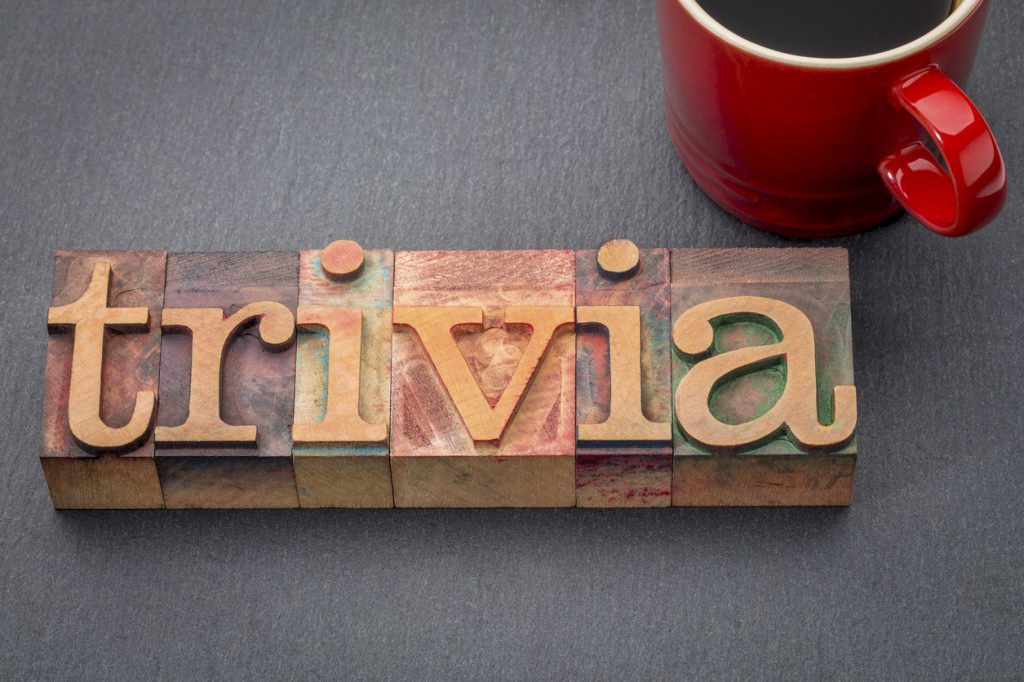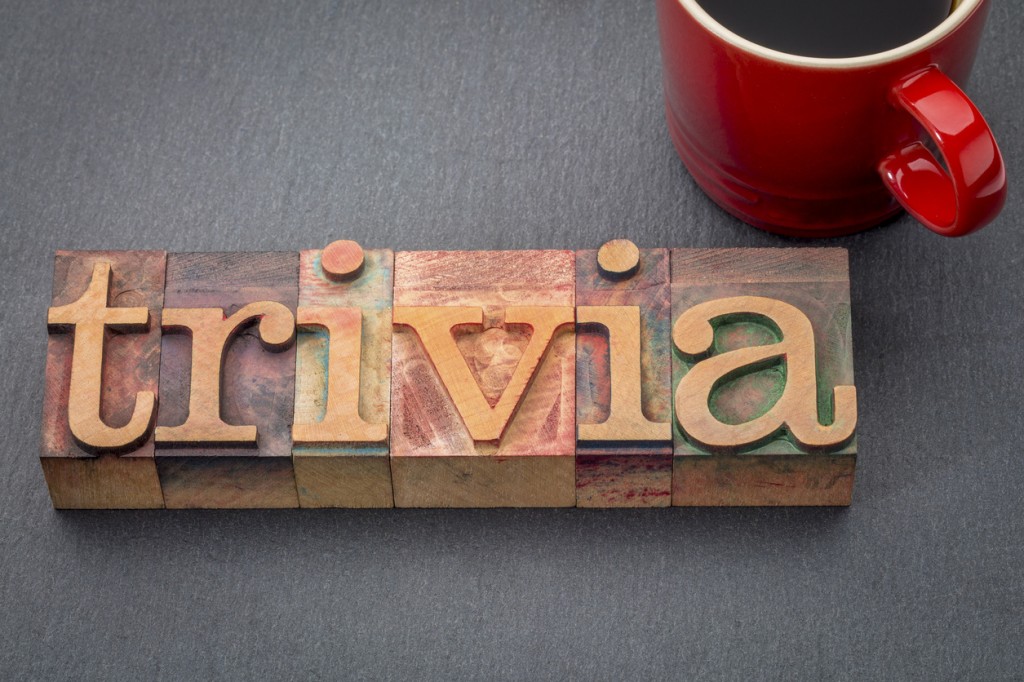It’s a pretty big day at BRI headquarters: It’s Trivia Day, an internationally recognized fun holiday. On that note, here’s some trivia about, well, trivia!
- Trivia doesn’t necessarily mean “trivial.” It actually originally meant something more like “common” or “basic.” In ancient Rome, the word triviae meant a road that forked into two or three roads. Triviae literally translates to “three roads,” and the name for such a well-traveled intersection quickly came to also mean “public” and “common.”
- That “for all” sense evolved into “trivial” in the first few decades of the 20th century. Beginning in 1902, author Logan Pearsall Smith collected quotes and fables in books called Trivia, More Trivia, and All Trivia.
- The first time that trivia was used to describe knowledge that was interesting but not necessarily important happened in the 1960s. The Columbia Daily Spectator at Columbia University published a column called “Trivia” beginning in 1965, in which authors Ed Goodgold and Dan Carlinsky played into a fad of the era: reminiscing about pop culture from their childhood. “Trivia nights” sprung up at bars around the country…which certainly led to the publishing of the board game Trivia Pursuit in the 1980s, and trivia books like Uncle John’s Bathroom Reader in the same era.
- A “factoid” generally refers to a small little bit of trivia, or a “fun fact.” But it was coined to mean quite the opposite. In 1973, writer Norman Mailer invented to word to describe a piece of information that isn’t true…but becomes accepted as true if enough people hear it or read it. So essentially, by today’s definition of factoid, Mauna Kea is the tallest mountain in the world because it actually is. By Mailer’s definition of factoid, Mount Everest is the tallest mountain on Earth because lots of people heard that it is.
- Perhaps the most famous celebrity trivia buff is Academy Award-winning British actor Michael Caine. For decades, he’s read trivia books and remembered arcane bits of knowledge, and then used them to regale co-stars and crew members on film sets. In the ‘70s, British comedian Peter Sellers started doing an impression of Caine, specifically reciting trivia and following it up with “not many people know that.” Caine later published a book of trivia called Not Many People Know That—a catchphrase that was invented by Sellers, not Caine.









